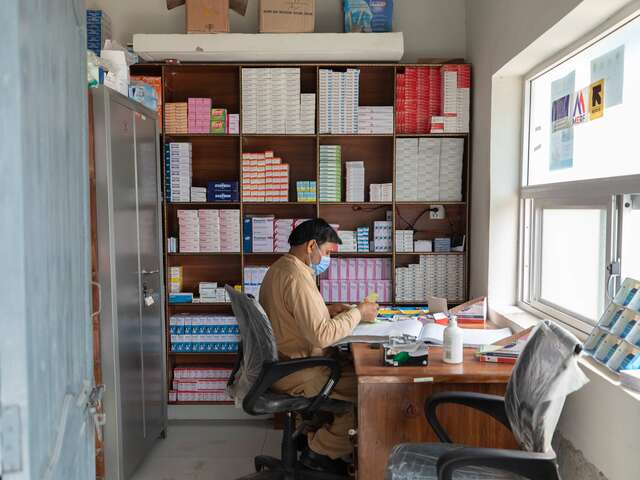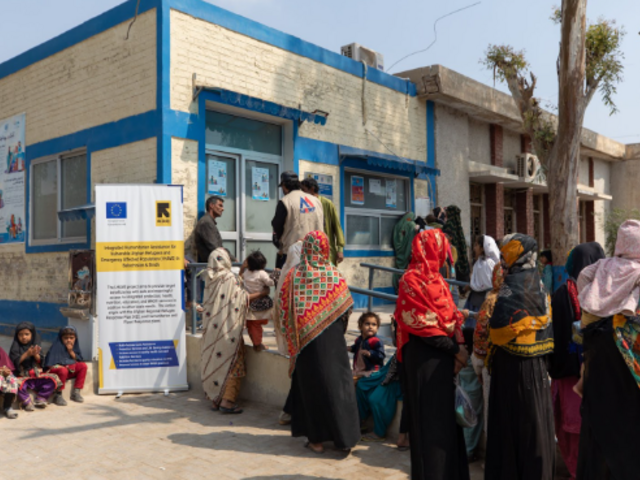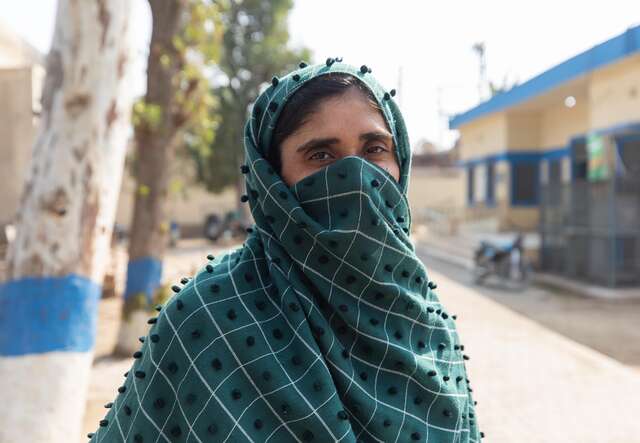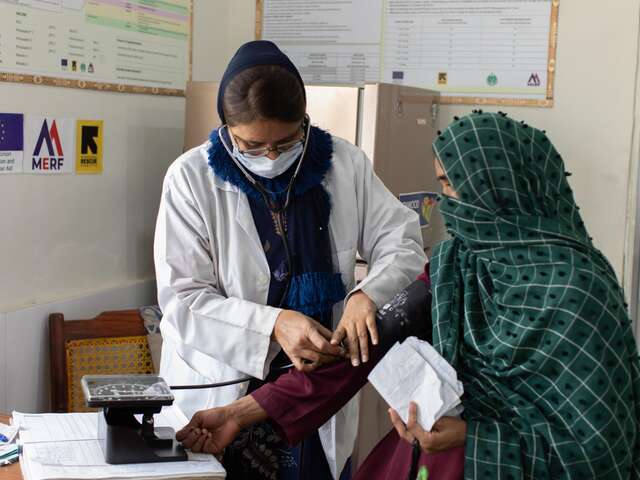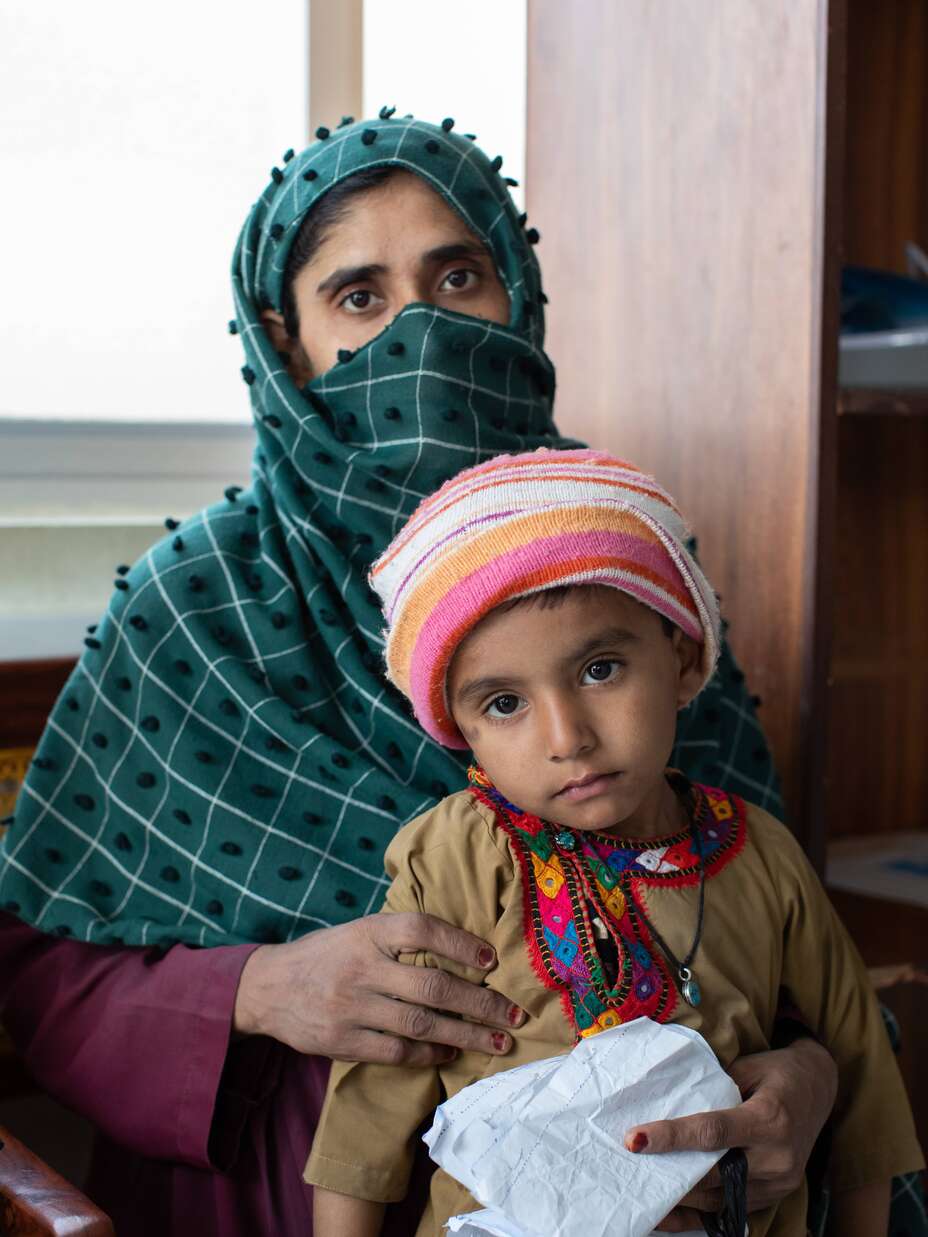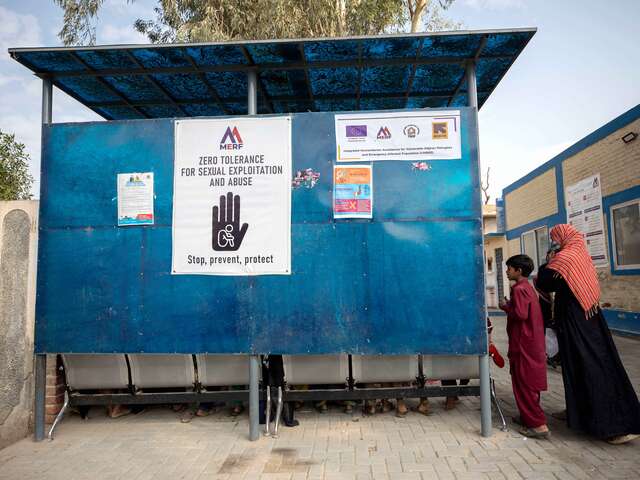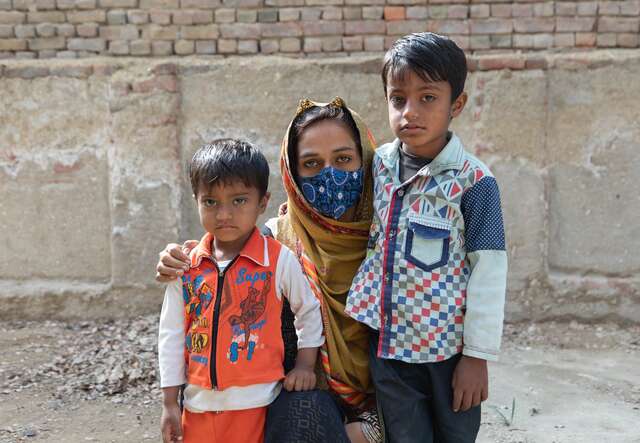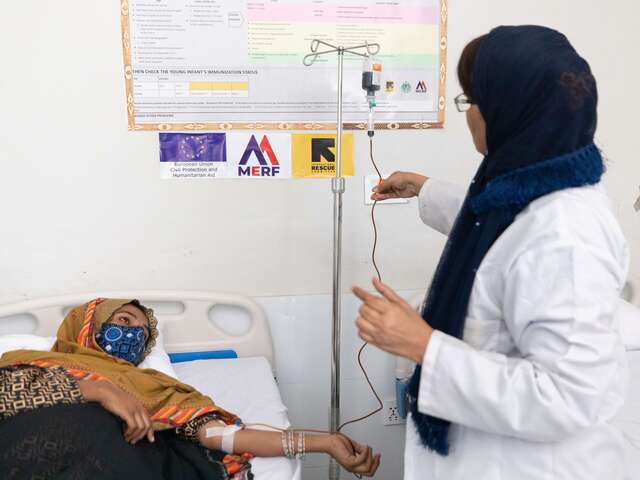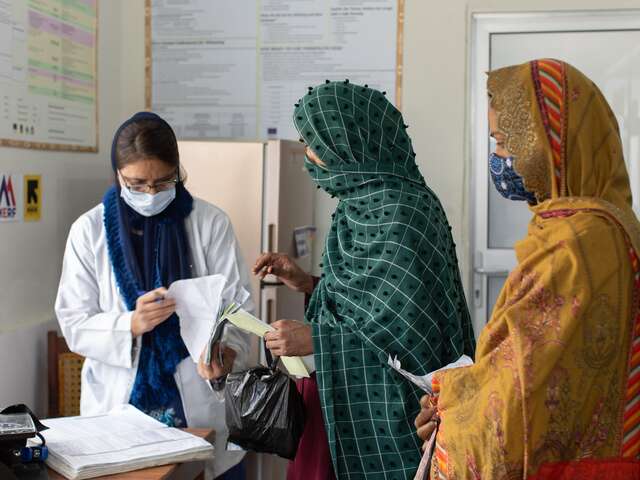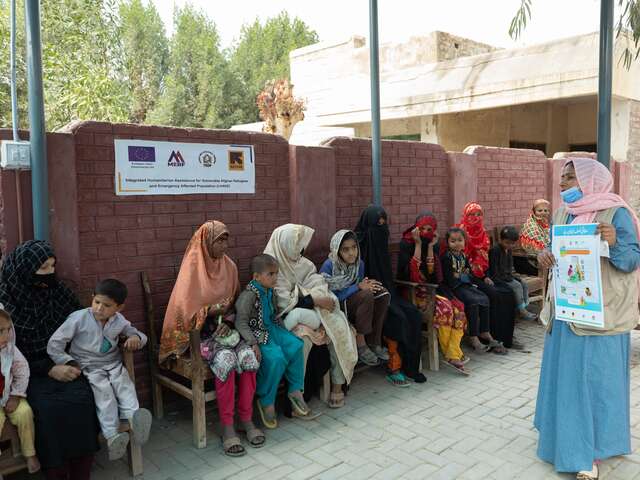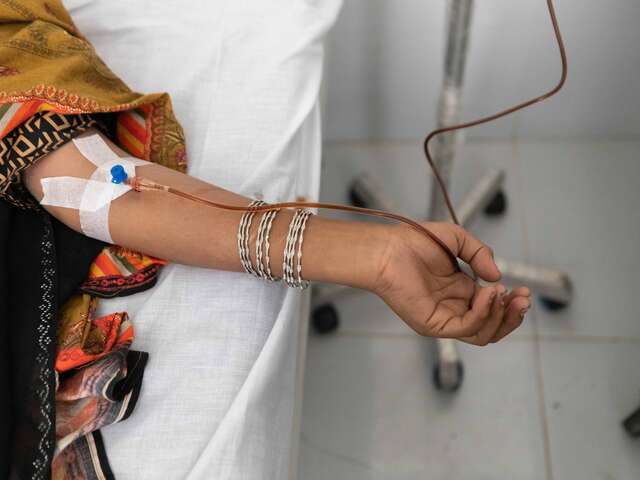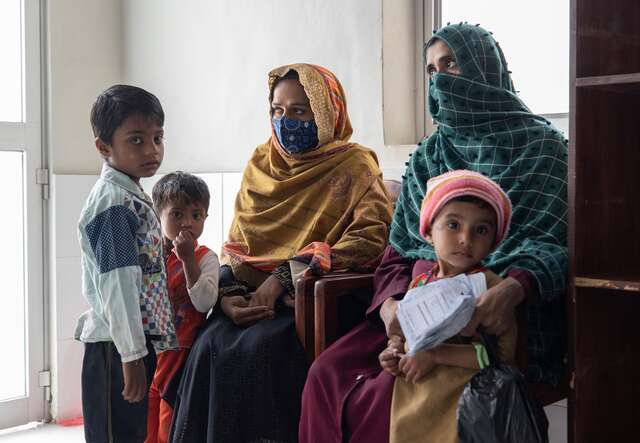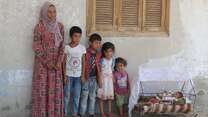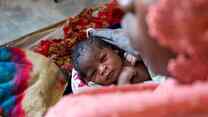The International Rescue Committee (IRC), continues important emergency relief services across Pakistan. Local health services often lack the support required for necessary reproductive care, leading to countless women suffering as a consequence. The Rural Health Centre (RHC) Luqman in the Khaipur district of the Sindh province has been rehabilitated after being damaged by the floods. With joint efforts between the IRC and the European Union (EU), the partner organisation Medical Emergency Resilience Foundation has provided infrastructure improvement as well as free medical support to affected populations.
The rural areas in Pakistan are often the most neglected and most in need of mitigative assistance. Pakistan has one of the highest maternal mortality ratios in South Asia, which leads women to face several reproductive health challenges. Climate change has only exacerbated health emergencies for pregnant women and new mothers, revealing the pre-existing inequalities in maternal healthcare that reveal women to be among those groups most disproportionately affected by disasters. The RHC Luqman was damaged by the devastating floods in 2022—which affected around 33 million people and caused catastrophic wreckage to essential infrastructures—and was rehabilitated in 2023.
Two Pakistani mothers share how the services at the rehabilitated Luqman Health Center have impacted their lives.
Raheela, a 25-year-old mother of four: "a person like me cannot bear the expenses of Iron IV and other medications"
25-year-old Raheela, who lives in the Khaipur district of Pakistan and is pregnant with her fourth child, could no longer afford her private doctor since they increased their fees after the floods. Her aunt told her about the IRC-supported and rehabilitated healthcare facility near her house that provides health services and medication to pregnant women for free.
“My health has improved a lot. When I used to go to the private doctor it cost around 2,000 [Pakistani Rupees] for the drip and since there is no birth spacing between my children, I was severely anaemic and needed an iron drip which was free at the EU health facility.”
The IRC, with support from the European Union Humanitarian Aid, has been able to support Raheela through medical consultations. Since July 2023 she has visited the facility around 15 times where she was given medical consultations and medicine. She tells us: “The services provided at the EU-supported health facilities are much needed. A person like me cannot bear the expenses of Iron IV and other medications. The staff at the facility is also courteous and my health has significantly improved.”
Dr Mehwish, the medical officer at RHC Luqman, explains the necessity of rehabilitating healthcare: “The impact is quite evident as the daily number of clients exceeds 200 people. Our Infant and young child feeding counsellors are active in the field as well to orient the community on the services being provided.”
The RHC Luqman has provided medical services to approximately 47,000 clients. Under the action, the EU-supported health facilities in districts of Daud & Khairpur provided medical services to around 240,000 clients who were impacted by climate-induced floods.
Flooding has severely damaged Pakistan’s crumbling healthcare infrastructure. In the Sindh province alone more than 1,000 health facilities have been fully or partially destroyed. There are further hindrances due to road damage and failing communication networks. These obstacles affect those giving birth, as well as those seeking access to contraception and other reproductive health services. Pakistan’s disastrous climate crises highlight not only how the effects are unevenly shared geographically, but also the life-threatening impact they have on women and girls.
Saiqa, a 24-year-old mother of two: "I feel much better now. I feel good about myself"
Saiqa, a 24-year-old mother of two, also lives in Khairpur, Sindh with her in-laws and husband. Her husband works at a nearby market with his donkey cart and they subsist solely on his meagre daily wages. The floods partially destroyed their mud-built home, leaving them to live with no gas or electricity in a slum colony.
Due to a lack of sufficient finances, Saiqa’s two children were delivered at home with the help of midwives, who are expensive to hire and not medically certified, relying on risky home remedies. Her two births left her physically unwell, as she experienced constant dizziness and headaches. This is the case for hundreds of women in Pakistan, who are unable to receive essential reproductive healthcare.
The health facility in Khairpur provides 24/7 medical care, specifically catering to maternal care, provisioned with essential equipment such as IV infusions, nebulisation, monitoring tools, preemptive medication, and lab testing. Medical and nonmedical staff conduct awareness sessions in order to provide health education, including hygienic practices to clients as well as other community members.
Luckily Saiqa, expecting her third child, stumbled upon the rehabilitated RHC where she was tested and given necessary medication. Without reproductive health education and no access to contraceptive methods, similarly as with Raheela, there was no optimal birth spacing between her children, which left Saiqa anaemic as a result. “My CBC blood test level was 8 points so they gave me iron drips every Wednesday. I feel much better now. I feel good about myself,” she explains.
Saiqa is relieved to have her third delivery under the care of experts in the fully equipped labour room at the centre with a sense of comfort she did not have with her previous two deliveries. Regular visits to the facility have contributed greatly to her increasing health. She observes her energy levels returning as her anaemia is being managed effectively. Saiqa’s recovery showcases the transformative power of essential and accessible healthcare in the aftermath of climate crises.
About our work with the European Union

